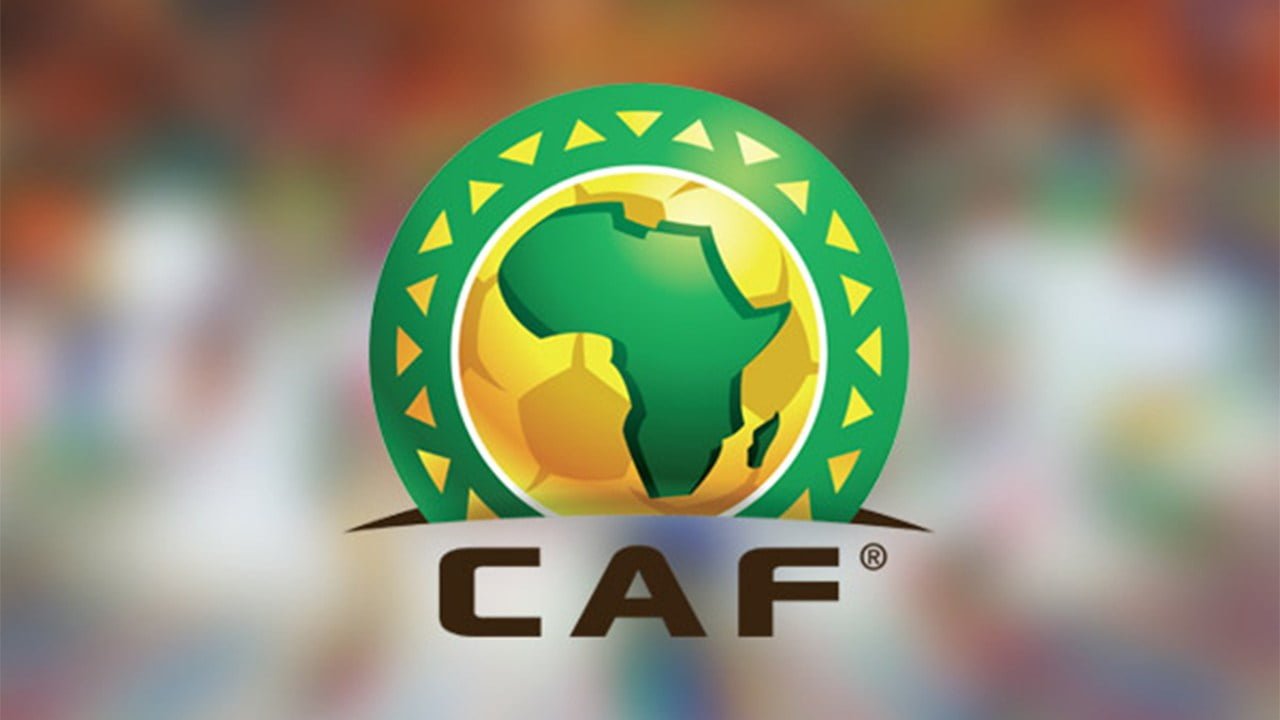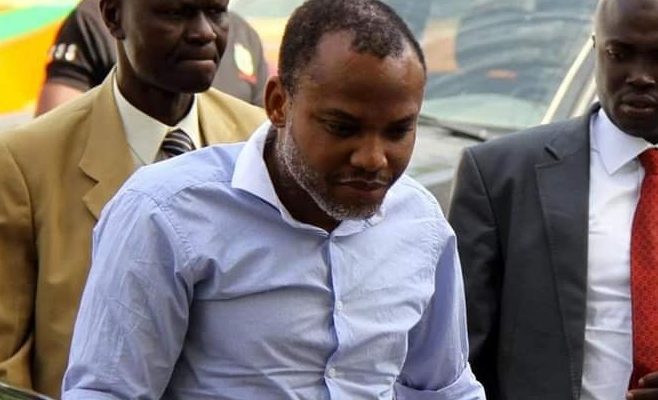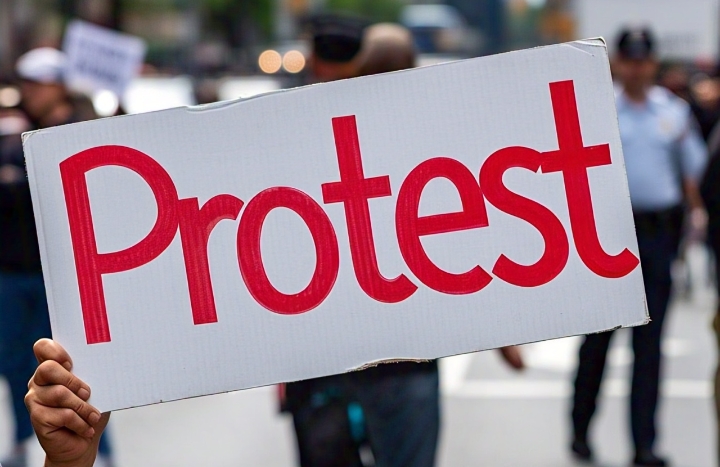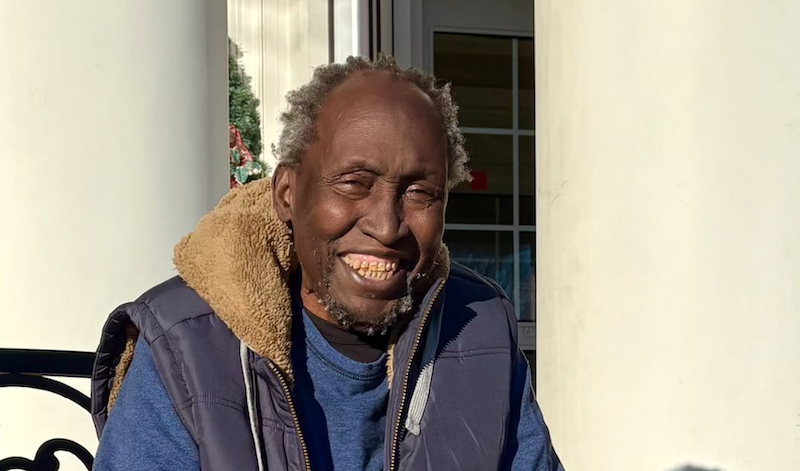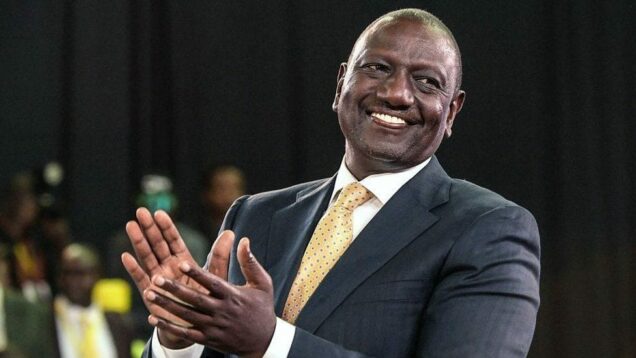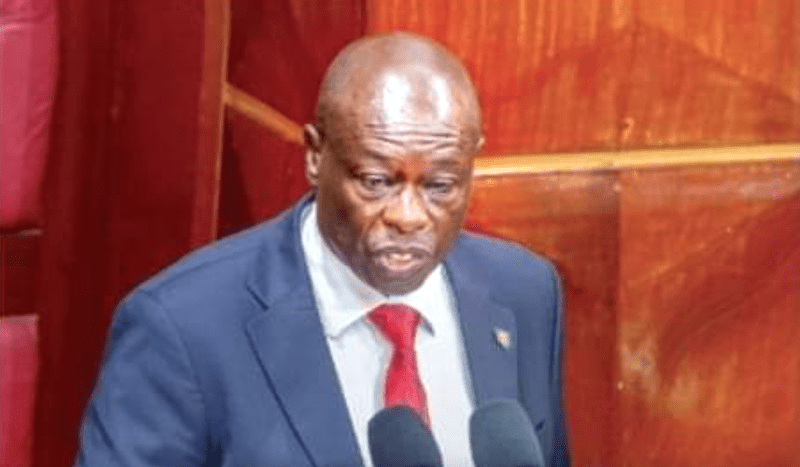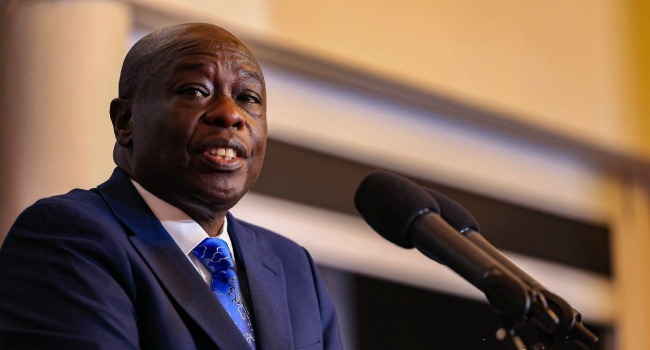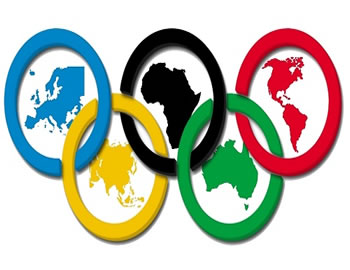A High Court of Kenya, sitting in Nairobi, has declared the forceful eviction of Nnamdi Kanu from Kenya to Nigeria in June 2021 as unlawful and illegal.
TheNewsGuru.com (TNG) reports Justice of the Milimani Law Courts in Nairobi delivered the judgement on Tuesday in the suit marked HCCHRPET/E359/2021.
A copy of the judgement obtained by TNG today revealed that the Nairobi High Court also awarded compensatory damages of 10 million Kenyan shillings (equivalent of 119.6 million) against the Kenyan Government for gross violations of Kanu’s fundamental human rights.
The presiding judge in his judgement faulted both the Nigerian and Kenyan government for the rendition of the leader of the proscribed Indigenous People of Biafra (IPOB), ruling that it violated his rights as guaranteed by the constitutions.
According Justice Mwita, “Having considered the pleadings and arguments by parties, the decisions relied on, the Constitution and the law, I come to the following conclusions;
“First, the government of Kenya violated the Constitution and Mr. Nnamdi Kanu’s rights and fundamental freedoms.
“Having entered Kenya lawfully, he was subject to the protection offered by the Constitution of Kenya 2010 and the government of Kenya had an obligation to uphold and protect his rights and fundamental freedoms.
“Mr. Nnamdi was however abducted, kept in solitude confinement, tortured and denied food and medication, a breach of basic rights.
“He was chained, humiliated, ridiculed and held in contempt and later forcibly removed from Kenya without following the law in violation of his rights and fundamental freedoms for which the government of Kenya is liable.
“Based on the above conclusions, the court makes the following declarations and orders it considers appropriate;
“A declaration is hereby issued that the abduction of Mr. Nwannekaenvi Nnamdı Kenny Okwu Kanu; holding him in incommunicado confinement, torturing him and denying him food, water, medication and other basic necessities was a violation of his rights and fundamental freedoms.
“A declaration is hereby issued that the abduction and subsequent forcible removal of Mr. Nwannekaenvi Nnamdi Kenny Okwu-Kanu from Kenya to Nigeria was in violation of the laws of Kenya; his rights and fundamental freedoms, including freedom of movement and security of the person guaranteed by the Constitution of Kenya, 2010 and, therefore, unconstitutional and illegal.
“An order for compensation is hereby issued awarding Mr. Nwannekaenvi Nnamdi Kenny Okwu-Kanu general damages of Kshs 10,000,000 against the Attorney General of Kenya on behalf of the government of Kenya for the violation of Mr. Nwannekaenvi Nnamdi Kenny Okwu-Kanu’s constitutional rights and fundamental freedoms”.
TNG reports Kingsley Kanu, the petitioner, filed the lawsuit on behalf of his brother, Nnamdi Kanu), for violation of his rights and fundamental freedoms.
What IPOB said about the Kenyan court judgement
Meanwhile, IPOB has described the judgement as a landmark victory in a statement signed by Emma Powerful, Spokesperson of the proscribed group.
“The Indigenous People of Biafra (IPOB) wishes to formally announce a resounding judicial earthquake that has shaken the legal foundations of the fraudulent rendition of our leader, Onyendu Mazi Nnamdi Kanu.
“In a historic, courageous, and landmark judgement delivered on June 24, 2025, the High Court of Kenya, sitting in Nairobi, found that the abduction, incommunicado detention, torture, and illegal transfer of Mazi Nnamdi Kanu from Kenya to Nigeria in June 2021 was unlawful, unconstitutional, and a gross violation of his fundamental human rights under Kenyan and international law.
“This judgement vindicates our consistent position that what transpired in Nairobi in June 2021 was not extradition but extraordinary rendition — a criminal act of state-sponsored international terrorism involving the highest authorities of the Nigerian and Kenyan governments.
“We are grateful beyond measure to the brilliant legal leadership of Professor PLO Lumumba, lead counsel in the Kenyan litigation, whose courage, clarity, and tenacity led to this monumental legal victory.
“IPOB also extends heartfelt appreciation to the Kenyan judiciary, especially Hon. Justice E.C. Mwita, who stood tall against ferocious political interference and international diplomatic pressure to deliver a fearless judgement grounded in law, morality, and constitutional justice.
“We know, and now the world must acknowledge, that Mazi Nnamdi Kanu did not commit any crime in Kenya. He entered Kenya lawfully as a British citizen.
“He was abducted in broad daylight at Jomo Kenyatta International Airport by agents of Nigeria’s secret police in collusion with rogue elements of the Kenyan security apparatus. He was chained, tortured, denied medication, and eventually bundled onto a private jet and flown illegally to Abuja without any extradition hearing or judicial warrant.
“This verdict places a permanent and indelible legal stain on the records of former presidents Uhuru Kenyatta of Kenya, ‘Muhammadu Buhari’ of Nigeria and former Attorney General Abubakar Malami, and their accomplices
“It also exposes the criminal lobbying missions embarked upon by Nigerian leaders — from ‘Buhari’, Osinbajo, to Tinubu and Shettima — all of whom tried and failed to manipulate Kenya’s judiciary to cover up this internationally condemned act of extraordinary rendition.
“Let it be known that this is not the end. This is the beginning of a global accountability campaign. All those responsible — in Kenya, Nigeria, or elsewhere — shall be pursued to the ends of the earth under the universal principle of accountability for crimes against humanity. Neither British diplomatic complicity nor cowardly silence from Western powers will shield the perpetrators from the legal, diplomatic, and moral reckoning that is coming.
“To Justice E.C. Mwita, we say thank you for your judicial bravery. To Professor PLO Lumumba and his team, we salute your exceptional advocacy. To the oppressed peoples of the world, this is your victory — a warning to tyrants that international borders will no longer shield criminal regimes from justice”
